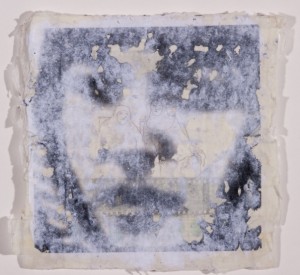“Dangerous girl. The dream of my life.”: Nadia Abou-Karr’s The Iconoclast: Revolutionary Love Poems
Right now I am growing more dangerous. I am growing into a woman who expresses her needs. I am not expressing my needs to make other people feel necessary. I am not expressing my needs so that other people can feel okay with the fact that they have needs. I am learning to express my needs because they are valid, they are sovereign, they exist and should be recognized, at least by me, and more and more by the people around me who I am learning to trust.
This has been a hard journey because deep inside, underneath all my brilliant beliefs about mutual support and collectivism, I have internalized a capitalist lie that says that if I need anything I can’t spontaneously provide myself, I must be weak and not worthy of life. In a culture that (from workfare laws to hip hop songs about gold-diggers) criminalizes women of color as if we are over-dependent and needy (when in fact it seems to me that the rest of the world depends on us in overt and insidious ways) I am deathly afraid of appearing to need anything or anyone too much.
Can anyone relate?
“pressure makes a diamond n/ that’s what I am.”
I experienced Nadia Abou-Karr’s The Iconoclast as a healing ritual affirming my most recent insight in my journey to reclaim my right to be a human in community aka a person with needs: my needs are valid even when I don’t know what to say. The Iconoclast zine is brave and powerful because it puts into the world those love notes to self and others that we sometimes send, sometimes tear up and throw away and sometimes keep in a box and offers them as a collective ritual and a window into moments that are usually closely guarded. These are the types of lovenotes that I have written my whole life, with no pronouns or names attached lest I be found out to be weak enough to care.
The use of the letter “n” as a conjunction here harkens back to Ntozake Shange’s poetry and plays and the outerspace backdrops, cut typed strips of language and blank space, handwriting and prints and negatives provide a type of choreography for this ritual.
“She wasn’t thinking straight, it was genius.”
What makes this zine queer is the embattled desire for the unbelievable self and the unbelievable other, the other self that is happening even as these words that we swear will make us explode find the darkness of their photocopied existence. Multiple times the narrator describes “not thinking straight” and it is true. Following the loops of this handwriting and the crooked lines of pasted text is not meant to reproduce who we were before or to channel our desire in to proper lives of consumption.
Asking and answering the question early on of “Who I$ the ICONOCLAST?” aka who is the love object, who is the narrator becoming and opening up to, the narrator offers a confrontational definition beginning with:
“A destroyer. A non-believer. Someone who says
the worst thing. Does the worst thing. No one can believe it.
She is a destroyer of religious symbols and established
conventions.
She
wasn’t thinking straight, it was genius.”
This definition makes space for radical difference. No one can believe it. And yet the narrator can believe in the unbelievable outcast figure enough to desire her(self). Dangerous girl. The dream of my life.
The fact that these are revolutionary love poems means that while confrontation this encounter is also radically inclusive. In one of the moments of striking clarity that I have come to expect from Nadia Abou-Karr in our collaborations and her impactful community based activism the narrator offers a slew of short sentence fragments about love including “No such thing as fake Love.”
NO SUCH THING AS FAKE LOVE!!!!
This is everything. Succinctly vanquishing everything fake from being confused with love and also embracing love in all the ways it shows up this statement is an act of love for love itself in the process of being its messy confrontational and sometimes inarticulate self. The Iconoclast is going to turn you out. I highly recommend going through this ritual yourself because I can never do justice to how the words hit the images and how the layers of gray and black become everything you wanted to say and couldn’t one after the other. Reading this zine will make you want to do something creative, like love somebody or be yourself or write longhand or cut and paste. Get started.


0 comments